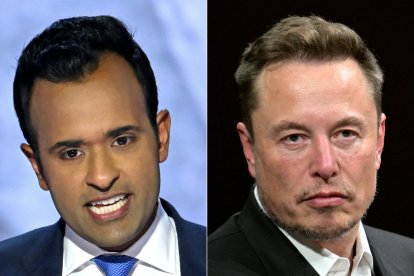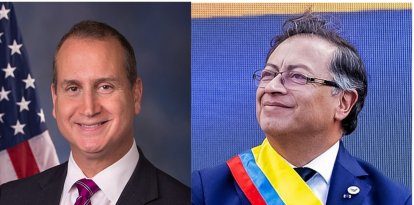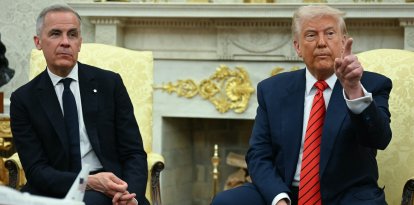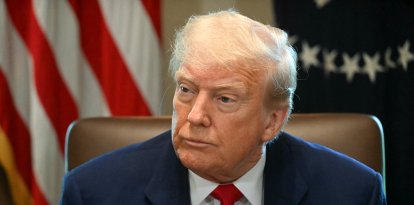Supreme Court could play key role in Musk and Ramaswamy's government cuts
The tech entrepreneurs wrote an op-ed about their work at the new Department of Government Efficiency.

Musk and Ramawsmy revealed their plan for DOGE/ Andrew Caballero Reynolds, Alain Jocard.
Elon Musk and Vivek Ramaswamy revealed their plan to make the federal government more efficient. The next heads of the Department of Government Efficiency (DOGE) published an op-ed in The Wall Street Journal in which they explained their goals for the next four years.
One of the most commented points in the article was when they specified that all cuts cannot be made through executive actions, due to the Tax Control Act of 1974, which establishes that the Federal Government cannot cut spending authorized by Congress. However, they clarified that the president-elect views this legislation as "unconstitutional" and that, when the time comes, they expect the Supreme Court to side with him.
In turn, Musk and Ramaswamy assured that they will focus on three main objectives: "regulatory rescissions, administrative reductions and cost savings." "We will particularly focus on driving change through executive actions based on existing legislation rather than passing new laws," they added.

Politics
Musk's Department of Government Efficiency is looking for employees: Here are the requirements
Alejandro Baños

Technology
Trump accompanies Elon Musk at SpaceX launch of Starship, the largest rocket ever built
Sabrina Martin
In terms of its impacts, reducing regulations would allow for "at least" proportional cuts in the government workforce.
"A drastic reduction in federal regulations provides sound industrial logic for mass head-count reductions across the federal bureaucracy. (...) Not only are fewer employees required to enforce fewer regulations, but the agency would produce fewer regulations once its scope of authority is properly limited," they continued in their op-ed.
In turn, Musk and Ramaswamy addressed some concerns about civil service protections, which could prevent the layoff of federal workers.
">In a new WSJ oped, @elonmusk & @VivekGRamaswamy say they believe SCOTUS could open the door to unilateral spending cuts, without Congress, based on what they say is the unconstitutionality of the 1974 budget law
— Jeff Stein (@JStein_WaPo) November 20, 2024
Could be an absolutely massive, pivotal fight pic.twitter.com/14e8VtNQv1
"The purpose of these protections is to protect employees from political retaliation,” they wrote. “But the statute allows for ‘reductions in force’ that don’t target specific employees. The statute further empowers the president to ‘prescribe rules governing the competitive service.’ That power is broad," they explained in this regard.
"With this authority, Mr. Trump can implement any number of ‘rules governing the competitive service’ that would curtail administrative overgrowth, from large-scale firings to relocation of federal agencies out of the Washington area," they added.
Since Trump's victory over Kamala Harris last Nov. 5, Musk has been one of the men closest to the president-elect. During the last two weeks, he has been at Mar-a-Lago to advise Trump in the formation of the new cabinet and to take part in work meetings, including with world leaders.
With Javier Milei as the guide
Since his appointment, both Musk and Ramaswamy have made it clear that Javier Milei's economic measures in Argentina are an example for the United States to follow.
"A reasonable formula for fixing the U.S. government: Milei-style cuts, on steroids," Ramaswamy posted last November 18. On the same day, Musk tweeted the following, "Government reforms brought prosperity to Argentina!"
RECOMMENDATION





















